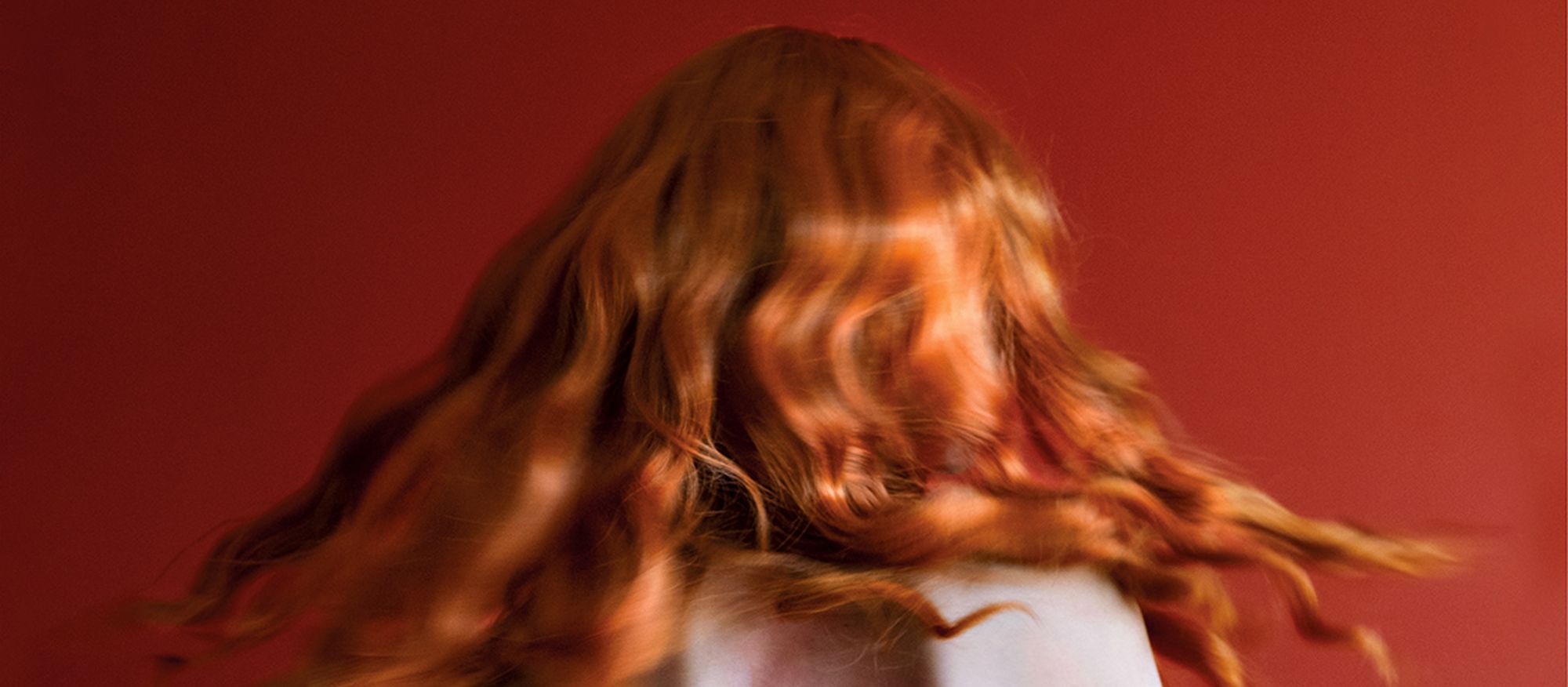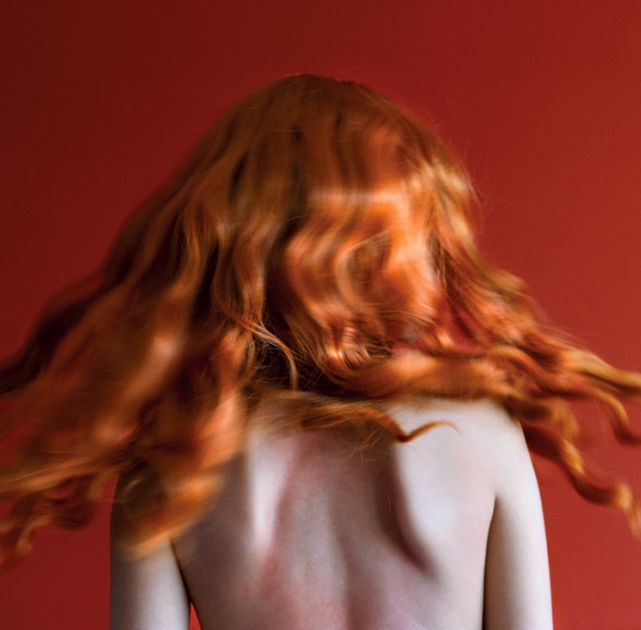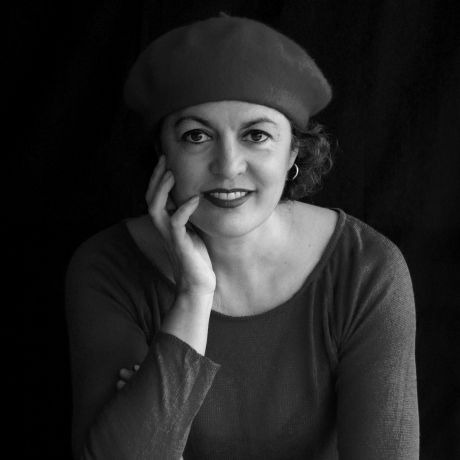Renascence is a tribute to the poet Edna St. Vincent Millay, the first woman to win a Pulitzer Prize for Poetry, in 1923, and a veritable point of reference in the field of gender equality. The author of this piece of photography sought to rediscover the poet through a contemporary perspective, where the images weave a story that combines reality and fiction, in two parallel worlds that intertwine. Childhood, bohemian life, artistic creation, genderless love, being or not being a mother, the body, pain, nature and death are underlying themes.
Through her contributions, Rocío Bueno affords the archive images a new meaning, inspired by nature, so fundamental in Millay’s work, and by her red hair, symbol and driving force of the project. The work has materialised in a photobook – finalist for the best self-published book of the PHotoESPAÑA 2022 prize – and in an exhibition that has been shown, among other places, in the archaeological museum in Braga, Portugal.
Each photograph is accompanied by excerpts from Edna St. Vincent Millay’s poems.
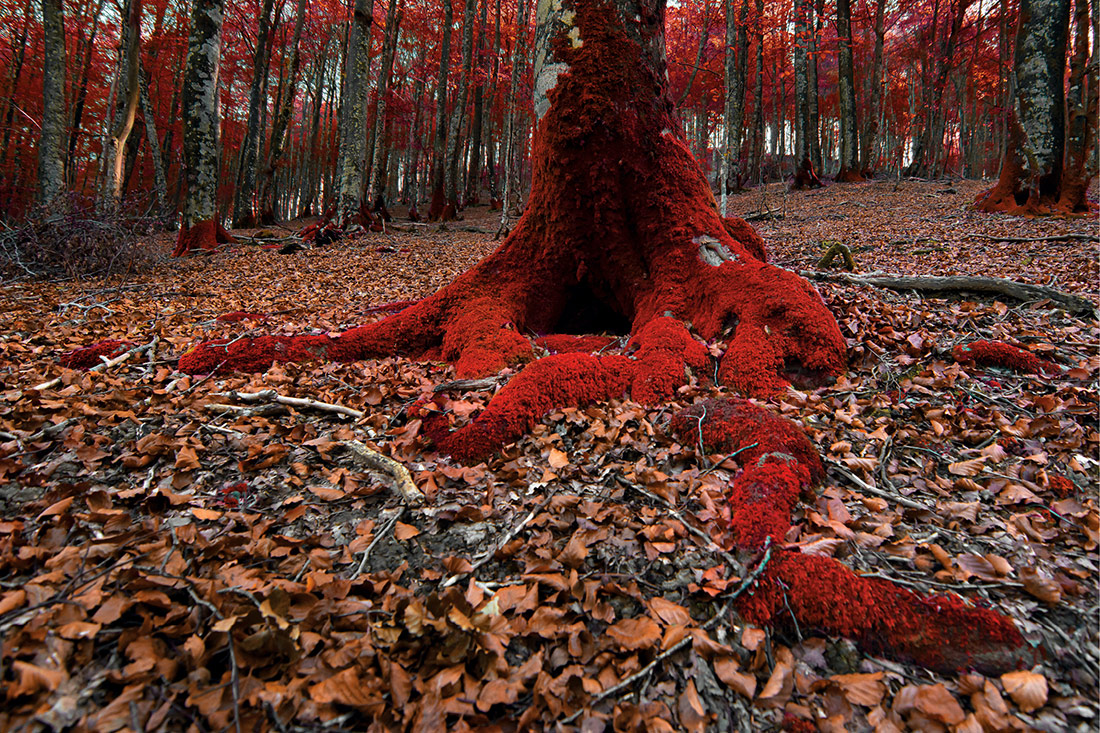
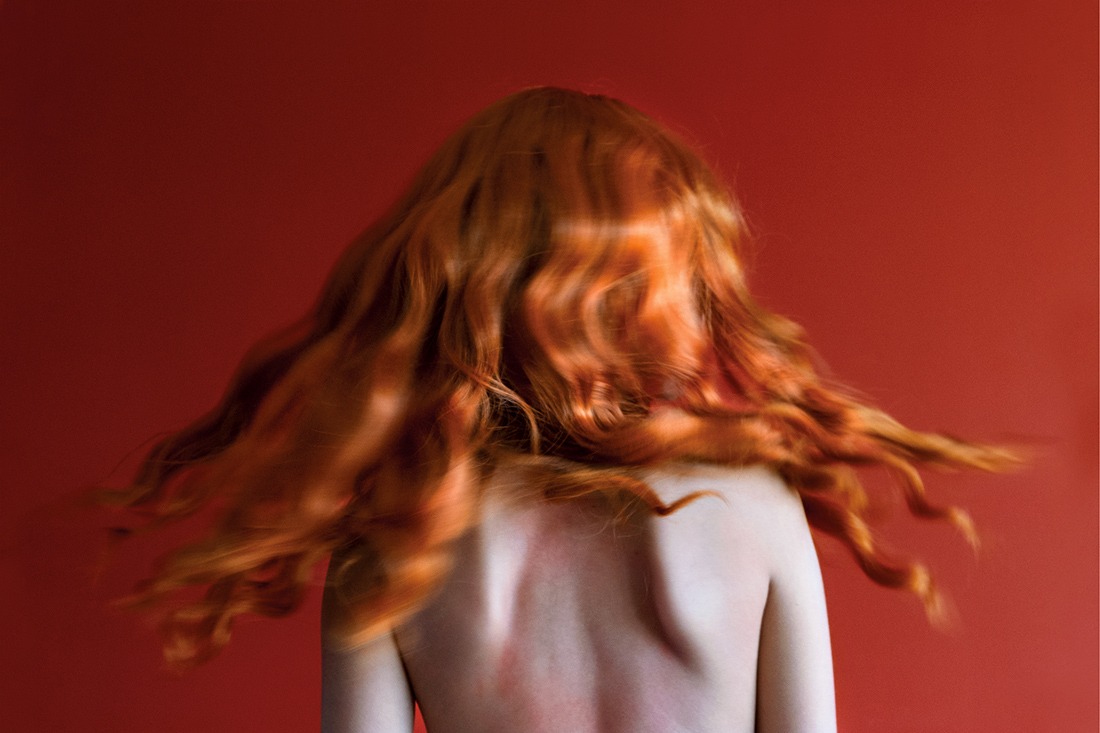
Witch-Wife
She is neither pink nor pale, / And she never will be all mine; / She learned her hands in a fairy-tale, / And her mouth on a valentine. // She has more hair than she needs; / In the sun 'tis a woe to me! / And her voice is a string of colored beads, / Or steps leading into the sea. // She loves me all that she can, / And her ways to my ways resign; / But she was not made for any man, / And she never will be all mine.
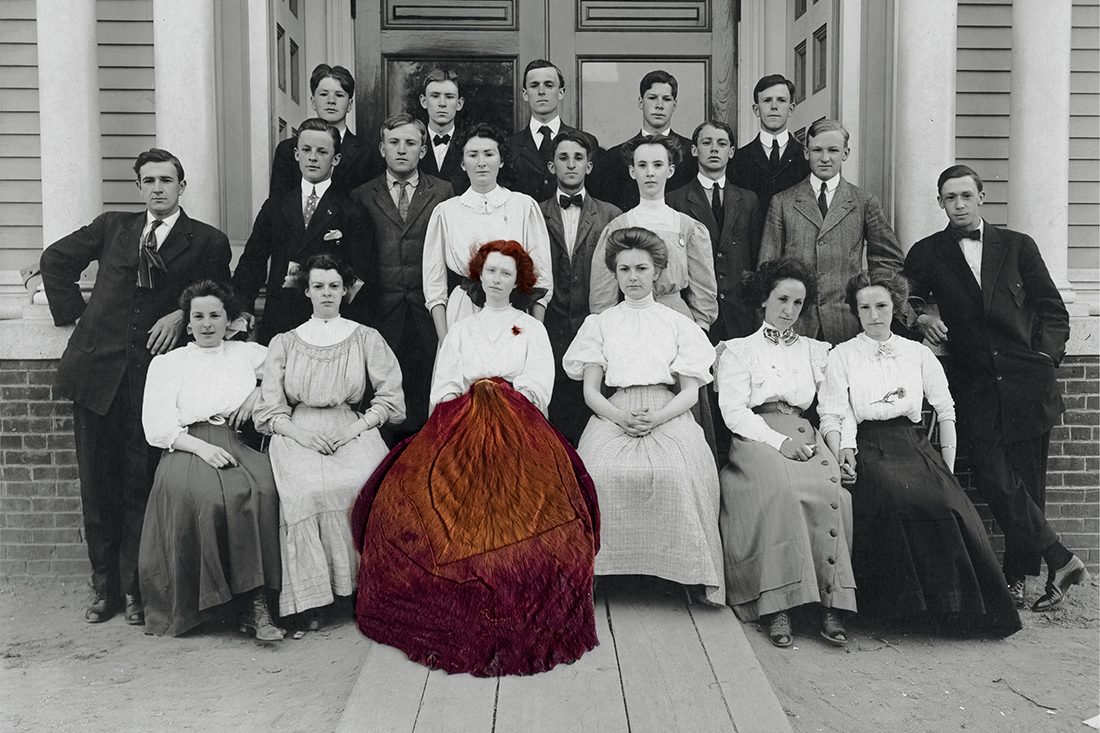
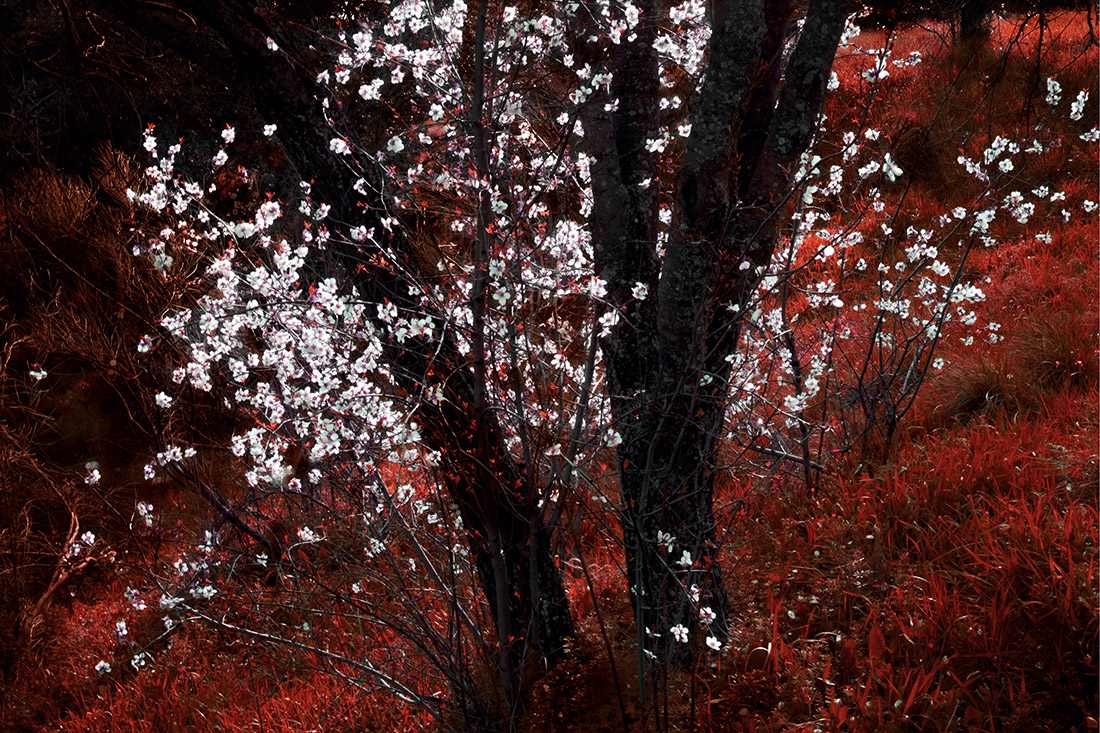
Renascence
Ah! Up then from the ground sprang I / And hailed the earth with such a cry / As is not heard save from a man / Who has been dead, and lives again. / About the trees my arms I wound; / Like one gone mad I hugged the ground; / I raised my quivering arms on high; / I laughed and laughed into the sky, / Till at my throat a strangling sob / Caught fiercely, and a great heart-throb / Sent instant tears into my eyes;
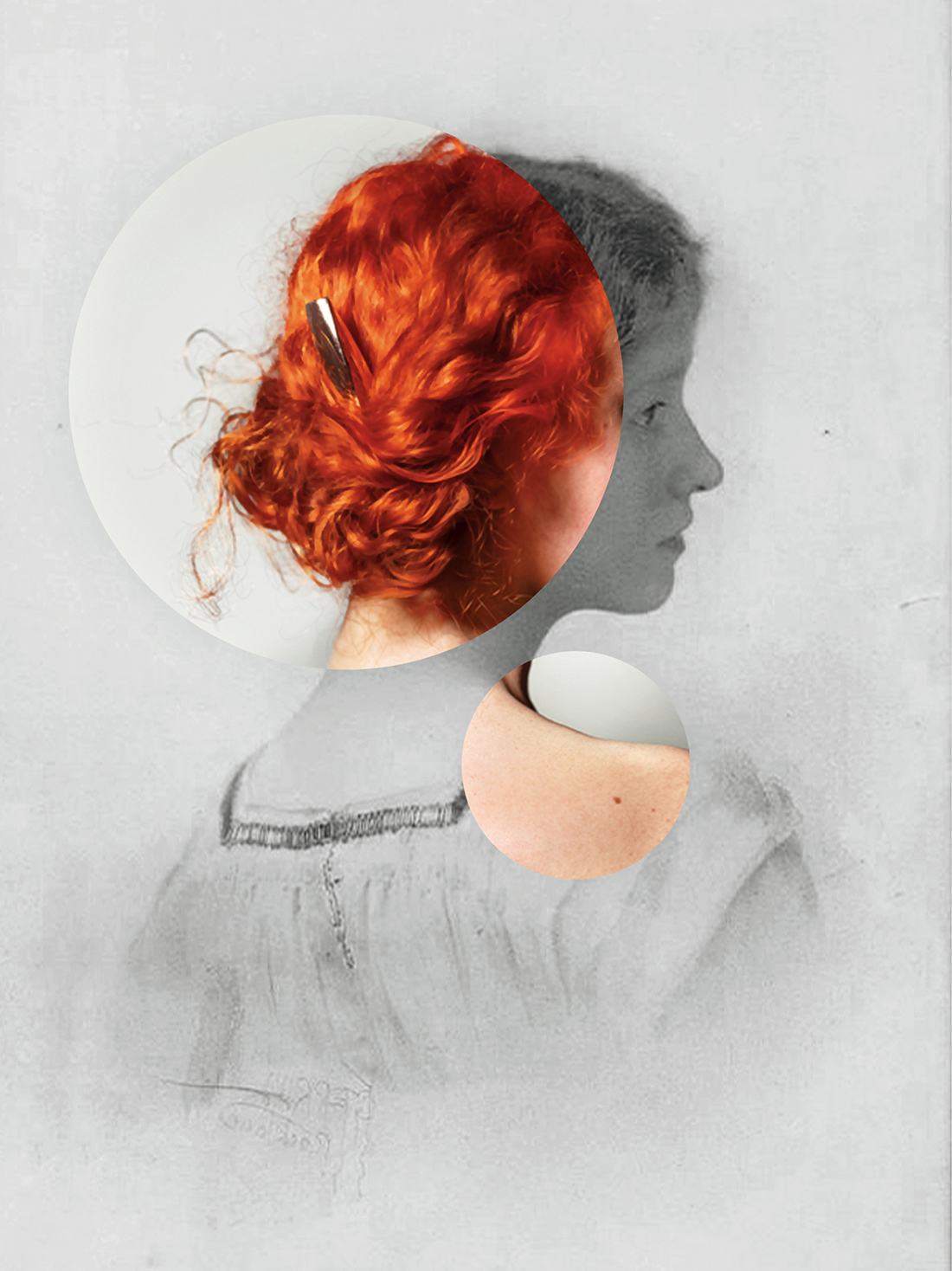
Afternoon on a Hill
I will be the gladdest thing / Under the sun! / I will touch a hundred flowers / And not pick one. // I will look at cliffs and clouds / With quiet eyes, / Watch the wind bow down the grass, / And the grass rise. // And when lights begin to show / Up from the town, / I will mark which must be mine, / And then start down!
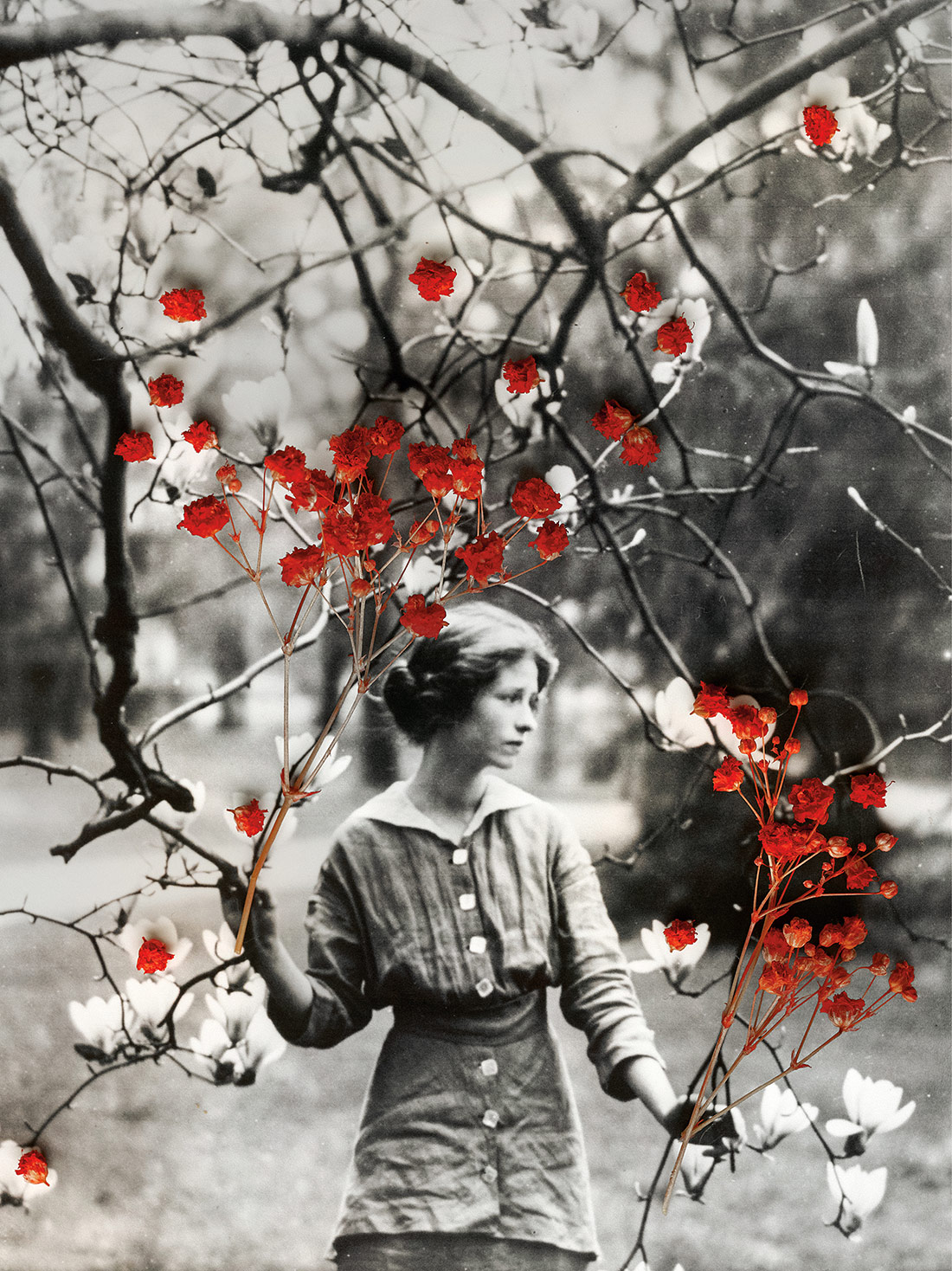
Sonnet XCIX
Love is not all: it is not meat nor drink / Nor slumber nor a roof against the rain; / Nor yet a floating spar to men that sink / And rise and sink and rise and sink again; // Love can not fill the thickened lung with breath, / Nor clean the blood, nor set the fractured bone; / Yet many a man is making friends with death / Even as I speak, for lack of love alone. // It well may be that in a difficult hour, / Pinned down by pain and moaning for release, / Or nagged by want past resolution's power, // I might be driven to sell your love for peace, / Or trade the memory of this night for food. / It well may be. I do not think I would.
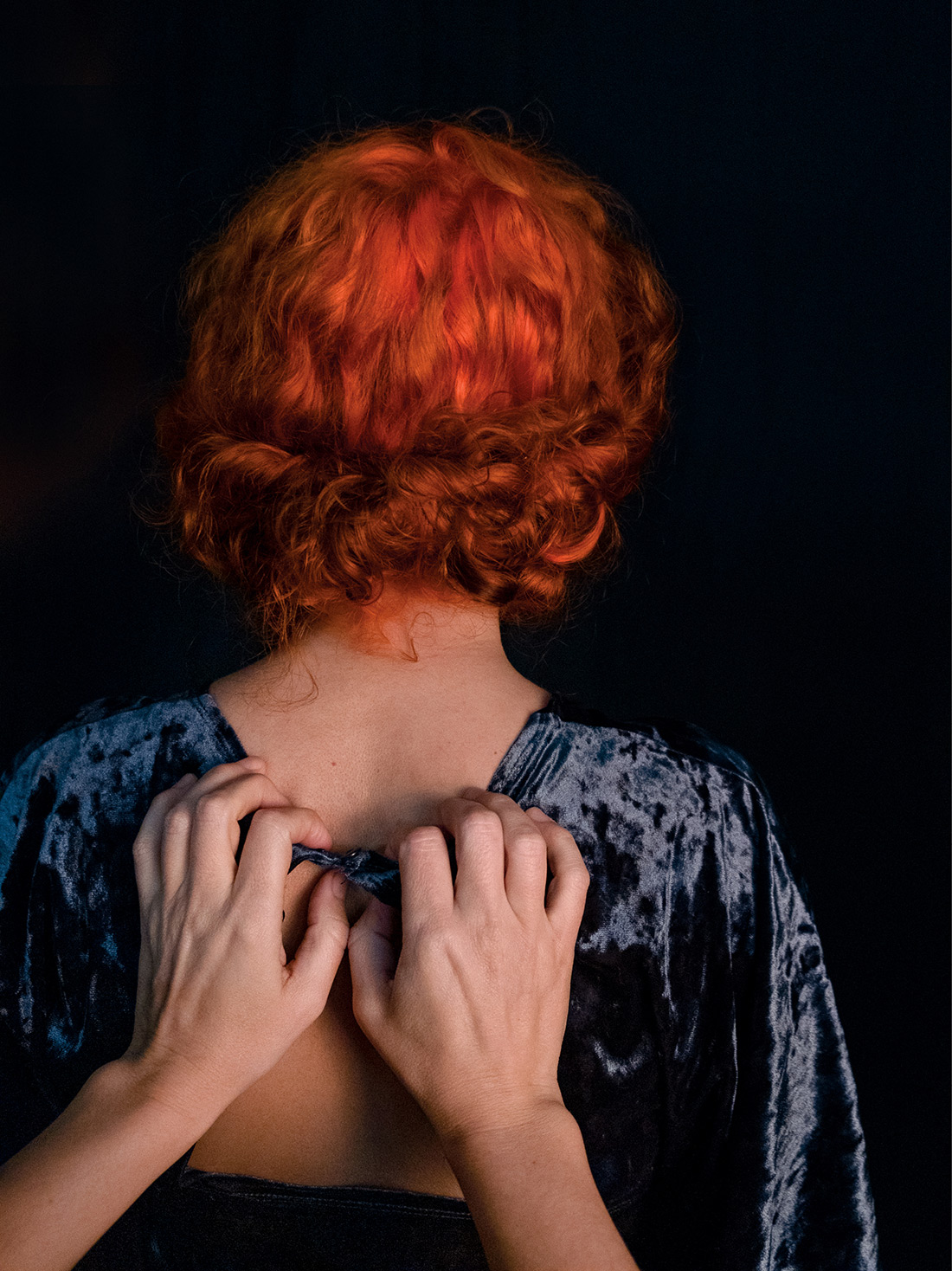
Wild Swans
I looked in my heart while the wild swans went over. / And what did I see I had not seen before? / Only a question less or a question more; / Nothing to match the flight of wild birds flying. / Tiresome heart, forever living and dying, / House without air, I leave you and lock your door. / Wild swans, come over the town, come over / The town again, trailing your legs and crying!
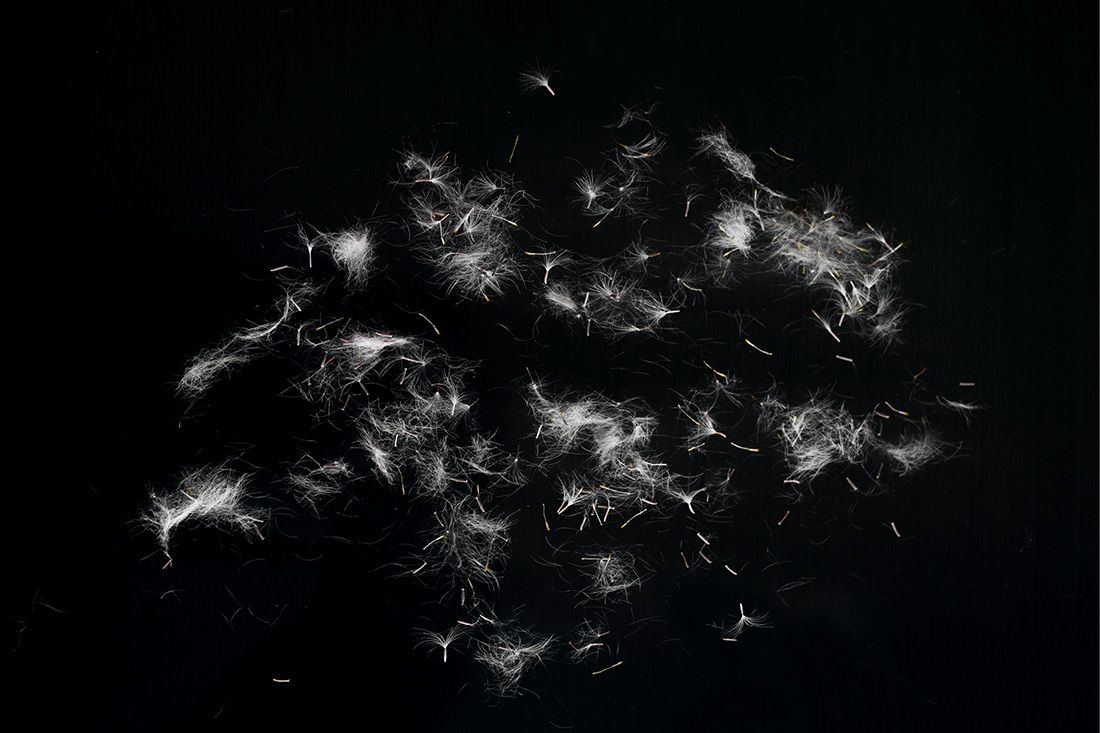
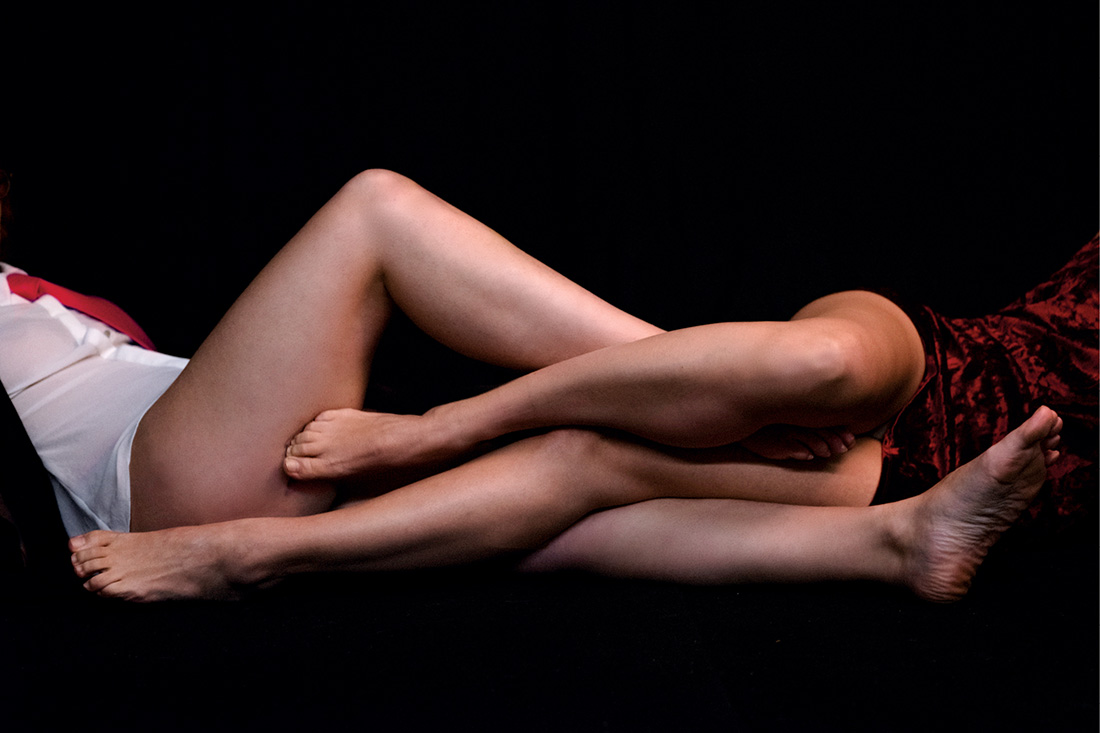
First Fig
My candle burns at both ends; / It will not last the night; / But ah, my foes, and oh, my friends— / It gives a lovely light!
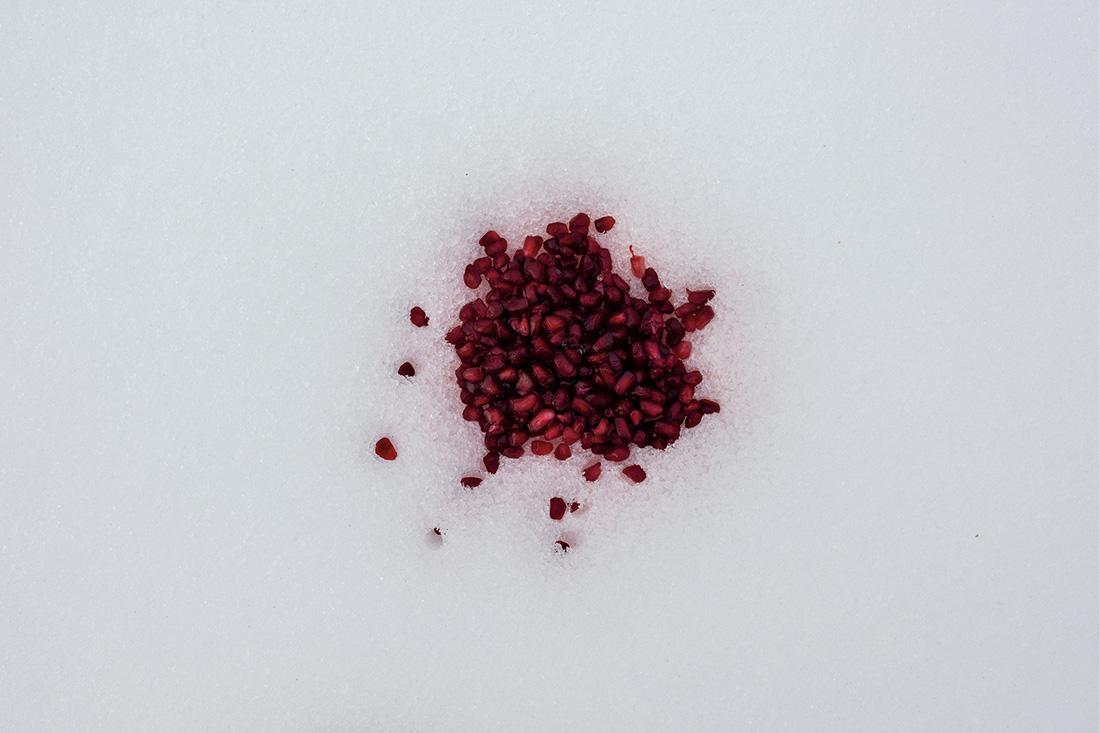

Second Fig
Safe upon the solid rock the ugly houses stand: / Come and see my shining palace built upon the sand!
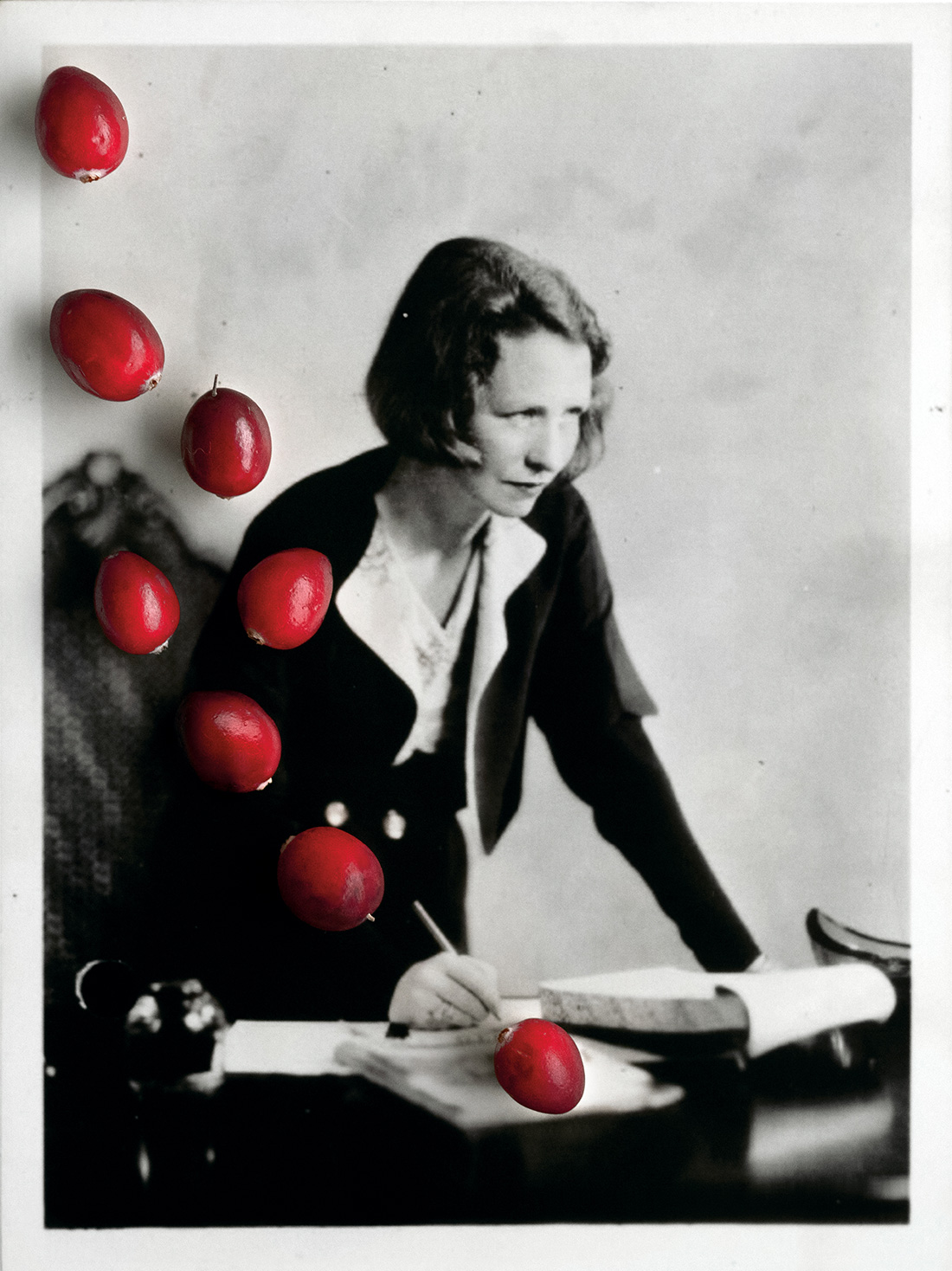
Burial
Mine is a body that should die at sea! / And have for a grave, instead of a grave / Six feet deep and the length of me, / All the water that is under the wave! // And terrible fishes to seize my flesh, / Such as a living man might fear, / And eat me while I am firm and fresh,- / Not wait till I’ve been dead for a year!
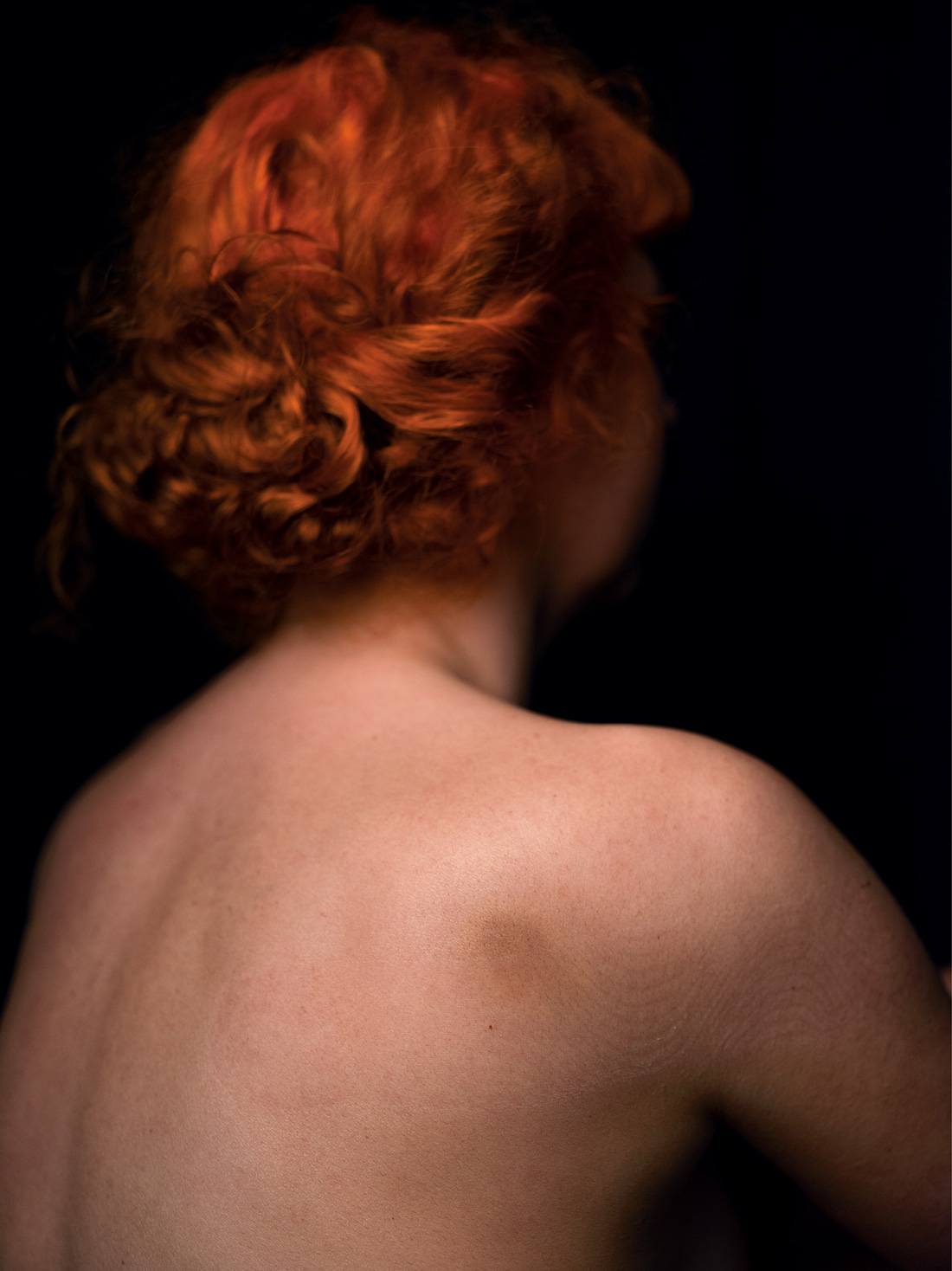
Sonnet XI
I shall forget you presently, my dear, / So make the most of this, your little day, / Your little month, your little half a year, / Ere I forget, or die, or move away, // And we are done forever; by and by / I shall forget you, as I said, but now, / If you entreat me with your loveliest lie / I will protest you with my favorite vow. // I would indeed that love were longer-lived, / And vows were not so brittle as they are, / But so it is, and nature has contrived // To struggle on without a break thus far,— / Whether or not we find what we are seeking / Is idle, biologically speaking.
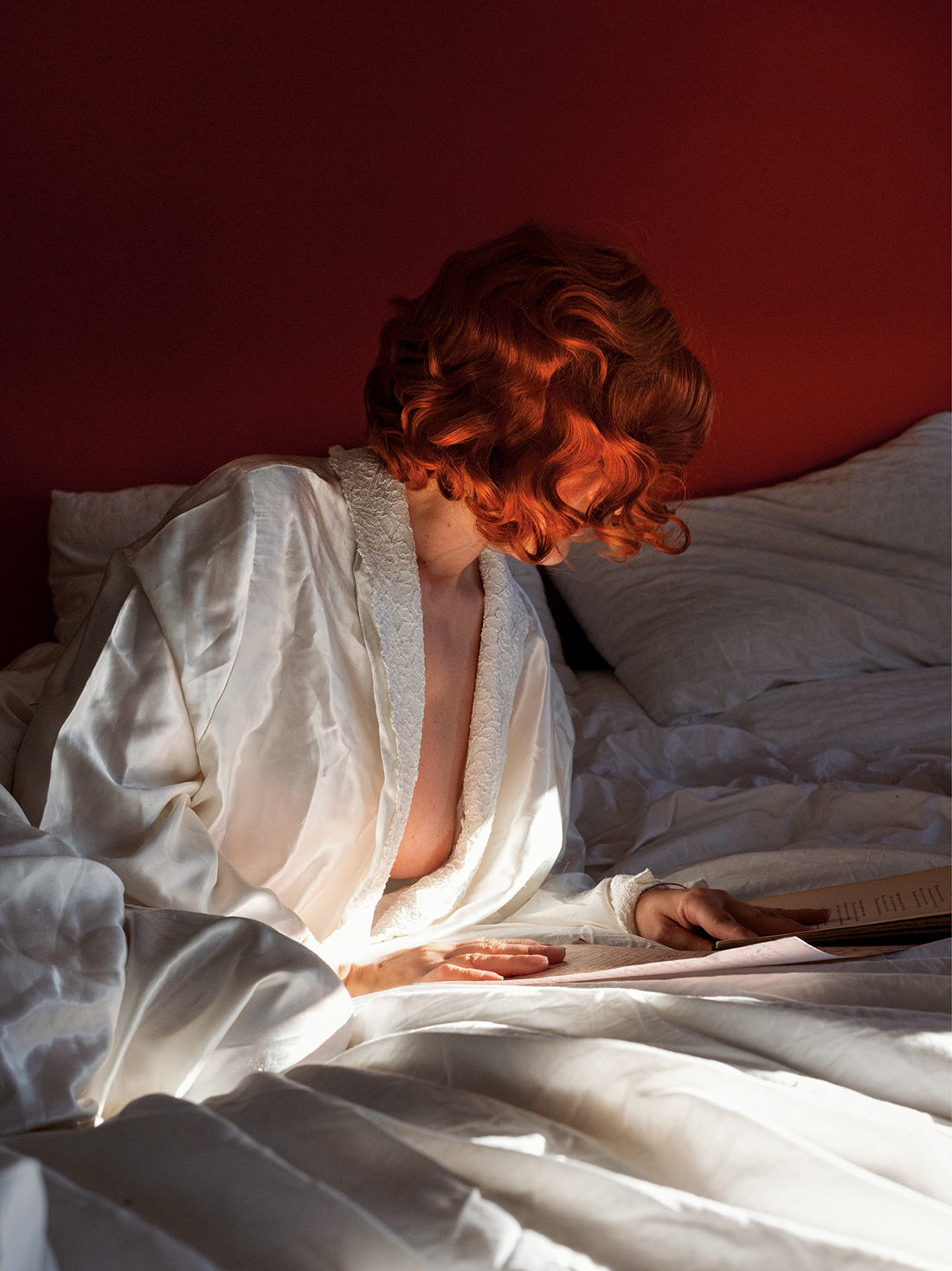
Sonnet XV
Only until this cigarette is ended, / A little moment at the end of all, / While on the floor the quiet ashes fall, / And in the firelight to a lance extended, // Bizarrely with the jazzing music blended, / The broken shadow dances on the wall, / I will permit my memory to recall / The vision of you, by all my dreams attended. // And then adieu, -farewell!-the dream is done. / Yours is a face of which I can forget / The color and the features, every one, // The words not ever, and the smiles not yet; / But in your day this moment is the sun / Upon a hill, after the sun has set.
The newsletter
Subscribe to our newsletter to keep up to date with Barcelona Metròpolis' new developments



